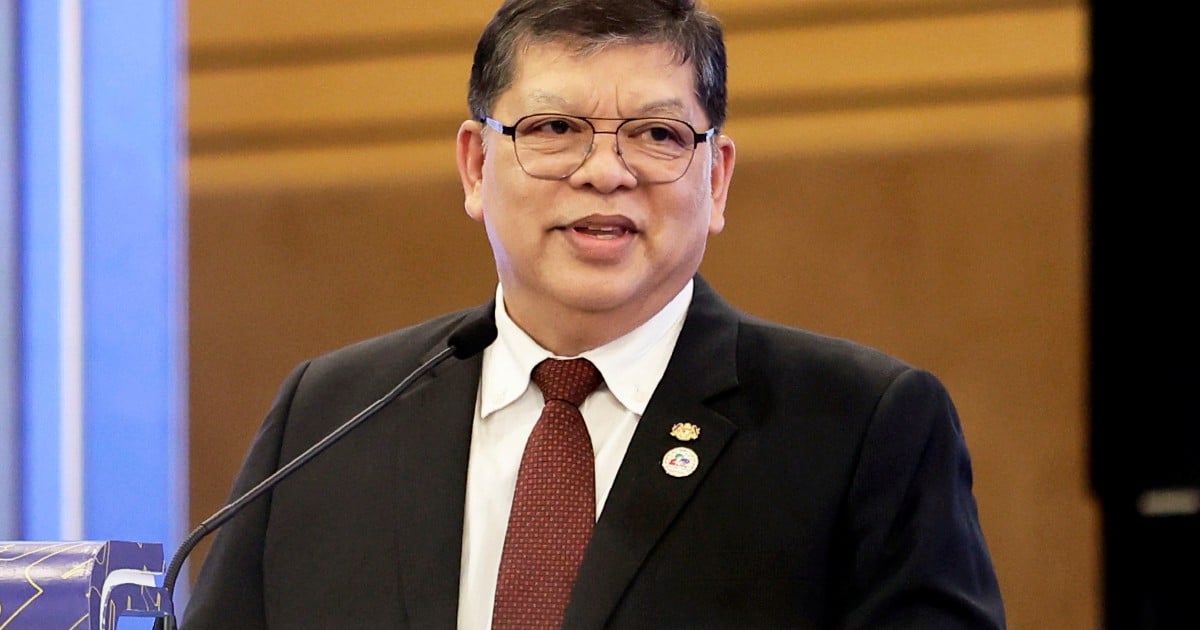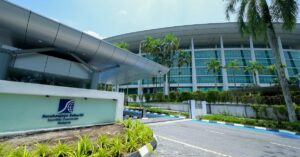KUALA LUMPUR: The 46th Asean Inter-Parliamentary Assembly (AIPA) has rejected Cambodia’s proposal to place its border tensions with Thailand on the urgent agenda, citing that the matter falls under the jurisdiction of the executive branch rather than the legislature.
AIPA president Tan Sri Johari Abdul said peace and ceasefire efforts between the two countries were already being undertaken at the government level, making it inappropriate for the assembly to deliberate on the issue.
“The issue between Cambodia and Thailand is a matter for governments. AIPA is a legislative body. The executive has already made decisions to continue peace efforts and ceasefire negotiations, which are ongoing.
“So it is better for us to leave this to the executive. On the legislative side, we support those efforts.
“That is why it is not appropriate for us to discuss something that is already being carried out by the executive,” he said at a press conference here today.
Earlier, Thai media reported that Cambodia, during the AIPA meeting in Kuala Lumpur, had accused Thailand of violating a ceasefire, unlawfully detaining soldiers, and infringing on its sovereignty, while urging Asean to intervene and halt Thai military actions.
Thailand refuted these claims, presenting evidence that Cambodia had instead breached international law by firing rockets at civilians and planting internationally banned landmines — acts it described as war crimes.
The Thai delegation further argued that Cambodia was distorting facts and inappropriately raising a bilateral matter at a multilateral forum, when existing bilateral mechanisms were already in place to resolve the conflict.
Following counter-arguments from the Thai delegation, the meeting, chaired by Malaysia, agreed to reject Cambodia’s request, affirming that the dispute should be handled bilaterally.
Tensions between the two nations have persisted for decades over their 817km border, which remains unresolved.
The latest flare-up followed a deadly incident in the Preah Vihear area on May 28, which claimed the life of a Cambodian soldier.
It escalated further after Cambodian Prime Minister Hun Manet accused Thailand of preventing more than 20 families from returning to their homes in a disputed border area.
This was detailed in a letter he sent to the head of the United Nations on Thursday. The Thai army responded by stating that the Cambodian residents had “illegally occupied” Thai territory.
In the letter, Hun Manet also asked Malaysia to urge Thailand to refrain from using force against civilians and to “halt planned forced evictions.”
Prime Minister Datuk Seri Anwar Ibrahim yesterday confirmed that Malaysia had engaged with both Thailand and Cambodia following renewed tensions on their shared border.
Anwar, who is the current Asean chair, said the talks took place on Thursday with Thai Prime Minister Anutin Charnvirakul and Cambodian Prime Minister Hun Manet.
“I had discussions yesterday. I spoke with the Prime Minister of Thailand and the Prime Minister of Cambodia on the latest developments at the Thailand-Cambodia border,” he told reporters briefly.
Anwar was responding to a question on whether Malaysia would extend assistance amid the recent tensions at the border.
Putrajaya has previously helped mediate in the dispute, with both sides reaching a consensus on five key issues during the Extraordinary General Border Committee (GBC) meeting between Thailand and Cambodia.
On July 28, Anwar chaired a special meeting between Hun Manet and then Thai acting prime minister Phumtham Wechayachai, which led to an immediate and unconditional ceasefire.
© New Straits Times Press (M) Bhd





